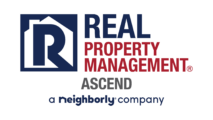 Once you’re done looking for the perfect rental home, the next step is to read and sign a lease. But before getting caught up with moving and decorating, make sure you understand the documents you’re signing.
Once you’re done looking for the perfect rental home, the next step is to read and sign a lease. But before getting caught up with moving and decorating, make sure you understand the documents you’re signing.
A lease is much more than a formality. It’s a binding legal agreement that outlines both your rights and responsibilities and those of your landlord. It acts as a guide for your time as a renter.
If the legal side feels daunting, don’t worry—we’ll break it down. Let’s take a closer look at the lease agreement so you can move forward with confidence.
What Are You Really Agreeing to in a Lease?
A lease agreement is a written contract with the property owner or management company. This legal document that outlines the terms of your agreement specifies your monthly rent, the length of your stay, and how maintenance and repairs will be handled. Since leases vary, it’s vital to understand standard lease terms and how they affect you.
Lease Terms Every Renter Should Understand
When looking at a lease, read the entire document thoroughly. Pay attention to whether it’s a fixed-term agreement or a month-to-month arrangement. Confirm the rent amount and due date, and check what happens if rent is late—such as late fees or grace periods. Look at renewal options and the kind of notice required. If something isn’t clear, ask for an addendum in writing to avoid misunderstandings.
Lease terms to know include:
- Lease term/length of lease: Fixed term or month-to-month.
- Rent amount and due date: How much you pay and when.
- Late fees and grace period: What occurs if rent is late.
- Renewal options: Whether leases renew automatically or require notice.
- Subleasing and guest policies: Expectations for roommates or long-term guests.
- Security deposit details: Deductions, requirements, and refunds.
Additional agreements may involve pets, yard care, and inspections. Reviewing these ensures you know what is permitted and what isn’t.
Understanding Rental Lease Clauses That Protect You
Understanding a rental lease includes knowing which clauses protect you. For example, your lease should explain responsibilities for maintenance—such as replacing light bulbs versus plumbing or electrical repairs. It should also describe how emergencies are reported and the timeframe for the property manager’s response.
Your lease documents may also specify utility responsibilities, like water, trash collection, and electricity. A pet policy will clarify if animals are allowed and detail fees or restrictions. If rent may increase, the lease should explain when and how these changes happen.
Clauses like these are designed to protect renters while ensuring both you and your landlord meet your obligations. Following them also helps you get your entire security deposit back.
Know Your Tenant Rights and Responsibilities
It’s equally important to understand your tenant rights and responsibilities. Regardless of the location of your rental home, you are entitled to safe, habitable housing, privacy, and respectful treatment under the federal law called the Fair Housing Act, which prohibits discrimination.
At the same time, tenants must maintain property cleanliness, report maintenance problems, and follow community or homeowner association rules. If you move before your lease ends, your agreement should explain how to provide notice and what fees may apply.
Enjoy Peace of Mind with a Smooth Rental Process
A strong lease protects you and the property owner or manager. With clear lease terms, you gain peace of mind and a smooth rental experience. Understanding the documents ensures you’re ready when signing your next lease.
When you lease at Real Property Management Ascend, we prioritize transparency and clarity in every lease. We are committed to safeguarding all individuals. If you’re finding a rental in Plano and need guidance on lease terms, reach out to us or call972-688-6255 today! Let us help you find the perfect rental home!
We are pledged to the letter and spirit of U.S. policy for the achievement of equal housing opportunity throughout the Nation. See Equal Housing Opportunity Statement for more information.


